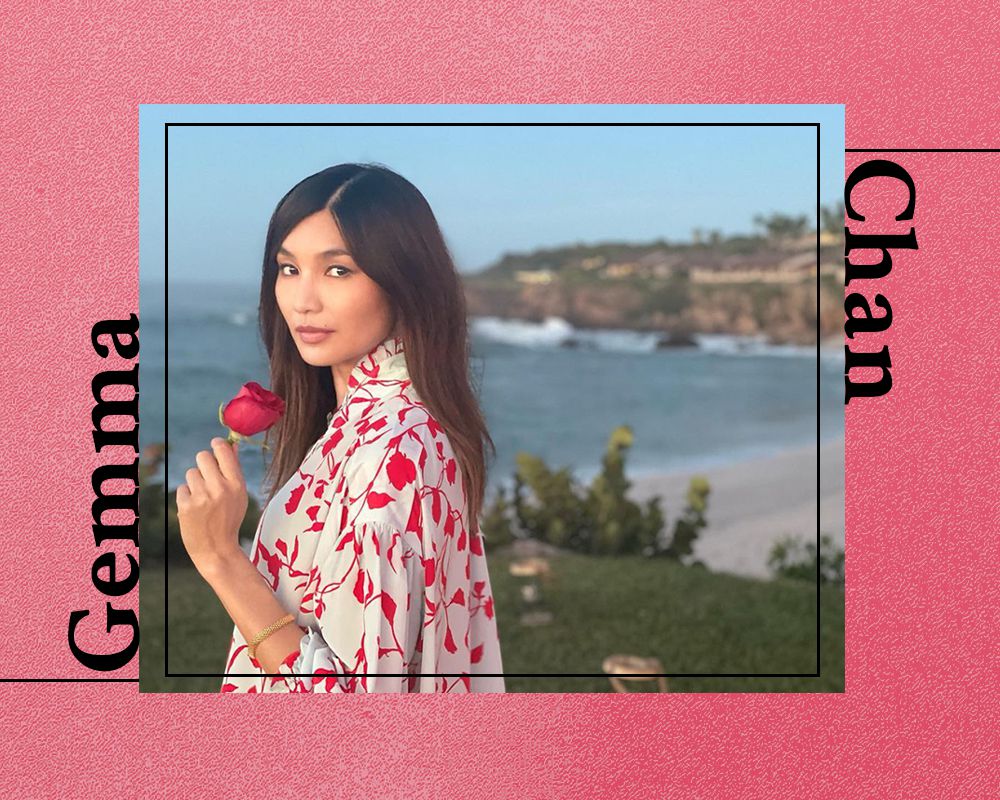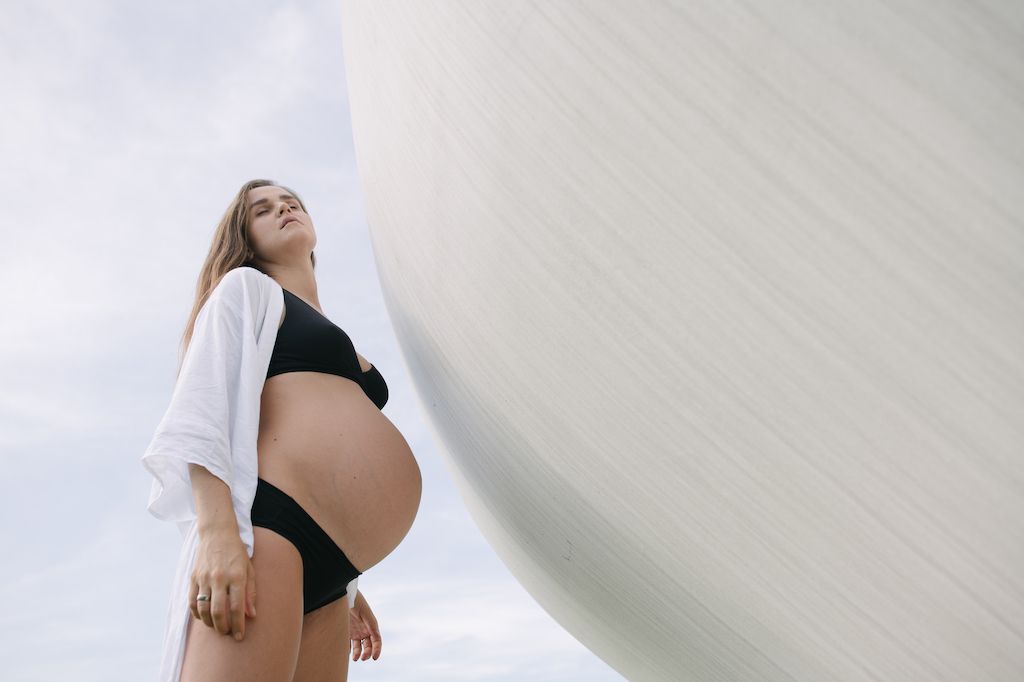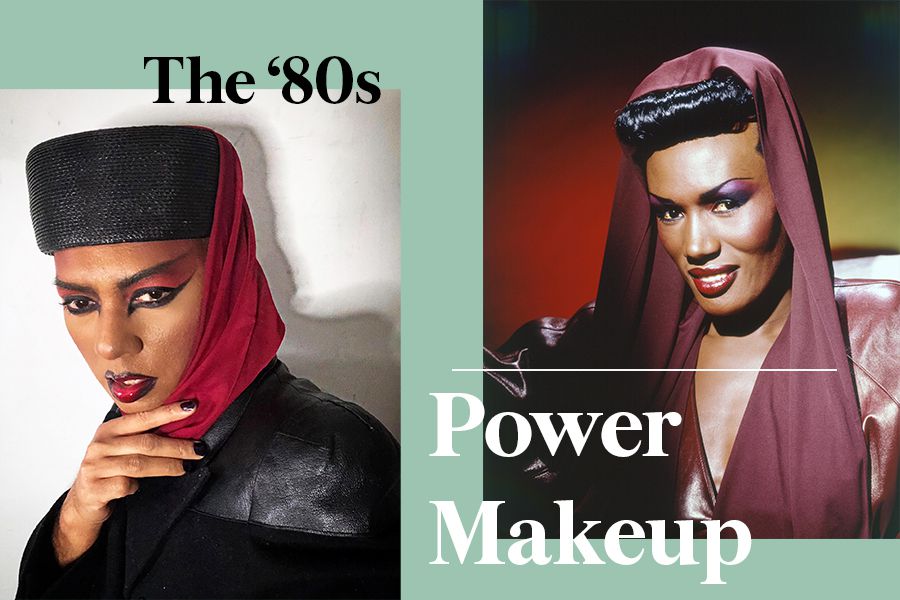Gemma Chan on How to Be a Better Ally and Skincare as Self-Care

Gemma Chan is a force of nature. She’s an international spokesperson for L’Oréal Paris, joining the ranks of other notable women including Katherine Langford, Eva Longoria, and Viola Davis. She’s graced both the small and big screens, including memorable roles in Crazy Rich Asians, and by the end of this year, not one, but two Marvel films. She’s also lent her voice in Disney’s Raya and the Last Dragon (Chan and I will later bond over watching the film, I with my niece and she with her nephew, and how animation can create beautiful memories).
Behind the spotlight, Chan is a tireless activist. As a Unicef UK Ambassador, she advocates for vulnerable children, women, and families, and she uses social media to amplify ways to support marginalized communities. When asked about the current rise in anti-Asian hate crimes, she easily names off a list of resources people can use to educate themselves and take action, but also offers one positive outcome amidst all the tragedy—that communities are coming together in allyship and collectively speaking out about all forms of hate. It’s timely, then, one of her upcoming projects is producing a podcast and film about the 1982 murder of Vincent Chin, which resulted in a case where a civil rights violation was first applied to the murder of an Asian American.
It’s clear that empowerment is an important concept to Chan, whether that’s on the community or individual level. In addition to chatting about women’s empowerment and being better allies to one another, Chan also shared what her definition of beauty is, her go-to products, and beauty mistakes of days past (yes, even beauty brand spokespeople have those moments).
L’Oréal Paris’ iconic tagline, “Because I’m worth it” just turned 50. Why do you think it’s resonated for so many decades and what does it mean to you?
I find it’s still such a powerful tagline and I’m fascinated by the history—in that it was a young female copywriter who came up with it at the time, when the advertising industry was very much a male-dominated field. She came up with this tagline that centered on a woman and her own worth and her own needs. I think it’s so clever because it’s giving [women] permission to do something for themselves—not for a man, not for anybody else. And that’s still so relevant today. It’s very much an affirmation of self-worth, permission to take care of yourself, and it’s also an affirmation that you’re enough as you are.
:max_bytes(150000):strip_icc()/gemma-horz.embedded-c539cf68d73948939b6068a24e9940e0.jpg)
What is your definition of beauty and who are some of your beauty role models?
My idea of beauty is as much about the inside as the outside. I think it’s about self-care, it’s about creativity. If we feel good, we look good. Being allowed to take time to nurture yourself in whatever way you need is what beauty is about. So that could be putting on a nourishing face mask, or reading a book, or experimenting, or being creative with your makeup.
My first inspirations were my mom and my grandmother. They’re very strong, courageous women, and they taught me about the value of hard work and sacrifice. They’re fearless in what they decided to do and how they went about it. I would also say, in terms of the L’Oréal Paris family, I’m such a huge fan of Viola Davis because I think she completely epitomizes that inner and outer beauty; she has such integrity and talent as well as beauty.
You’re enough as you are.
What is your beauty routine and how has it evolved over time? Is there anything, that when you look back, you think, well, that was a choice?
[Laughs]. Yeah, for sure, it’s definitely evolved. When I was younger, it was more about makeup. When I was trying to look older—you know, you want to get into a bar or whatever—[I made] a few questionable choices. I over-plucked my eyebrows. My mom always said not to, and I still did it anyway. It took years and years for them to grow back.
Now, if I have to get ready for an event, the makeup is very much part of it. But over the last year, it’s become much more about my skincare, and I’ve really focused more on that side of my routine. I’ve been using two really amazing serums from L’Oréal. At night, I use the retinol serum, which is brilliant, and in the daytime, I use the hyaluronic acid serum to really hydrate my skin. I use that before moisturizer or before any makeup. I cleanse with the glycolic acid cleanser, which is great to exfoliate your skin when you need it, and it makes my skin really soft and smooth.
What is the one beauty product you can’t live without?
Oh my goodness. Just one? I don’t know…
Fair—it’s hard! How about top three?
Okay, top three then. It would definitely be the [L’Oréal] retinol night serum; I really love that. I also love a lipstick—a bright lip. L’Oréal does a lovely Colour Riche lipstick called Devil’s Matte-Vocate—it’s a really classic red. I’ve also found putting on a bright lip is a great way to lift your mood even if you’re not necessarily going anywhere or you’re just on Zoom.
:max_bytes(150000):strip_icc()/gemma-vert.embedded-25a688a8498e41b788dd308b48a9247a.jpg)
Switching gears here to a very important topic: We’ve seen a recent rise in anti-Asian hate crimes. In addition to using your platform and voice to speak out, what are some other things you’re doing and what would you encourage others to do?
It has been a really difficult time and I know there’s a lot of grief and pain in the Asian community. What encourages me a bit is, more than ever before, we’re finding our voice and we’re speaking out in great numbers. There’s been a lot more allyship and action between different communities coming together and speaking out against hate in all its forms, and that’s really encouraging. I think we should absolutely keep building on those cross-community alliances and standing up for each other.
In terms of practical things we can do, the simplest thing is to donate to the community funds that are out there [note: Gemma has posted a few to her social media accounts]. You can support Asian-owned businesses. There’s a new directory listing category on Yelp that’s a really easy way to support businesses that have really been struggling over the past year.
One thing I found empowering and is incredibly useful—because a lot of people don’t know what to do if they witness an incident, a hate crime, or a racial harassment—there’s a bystander training you can do which is very, very quick. There are also slides with a summary of the training, and it’s based on Hollaback’s Bystander 5 D’s training. Actually, L’Oréal’s Stand Up campaign, which they launched awhile back, was incorporated as a way of encouraging people to be active bystanders when they witness sexual harassment. But it’s equally applicable if you witness racial or any other kind of harassment. I would encourage people to read up on that. It’s a way to be empowered to make a better judgment in the moment in a very safe way.
More than ever before, we’re finding our voice and we’re speaking out in great numbers.
In terms of building alliances and communities, part of it is representation of different voices and people in all industries and areas of life. The beauty industry, for example, has taken some steps towards more inclusivity and diversity, though there’s still a ways to go. What are your takes on the state of inclusivity in the beauty industry and what would you like to see?
I think great strides have been made in terms of visibility and diversity for a range of different ethnicities, shapes, sizes, sexualities, and genders across the board. There have been huge improvements—but, we also have to bear in mind visibility doesn’t equal success. We need to still be pushing forward in terms of helping more women, and more women of color, into those decision-making positions, into those positions of power, and into those gatekeeping positions.
18 Asian Beauty Experts Driving the Industry Forward








